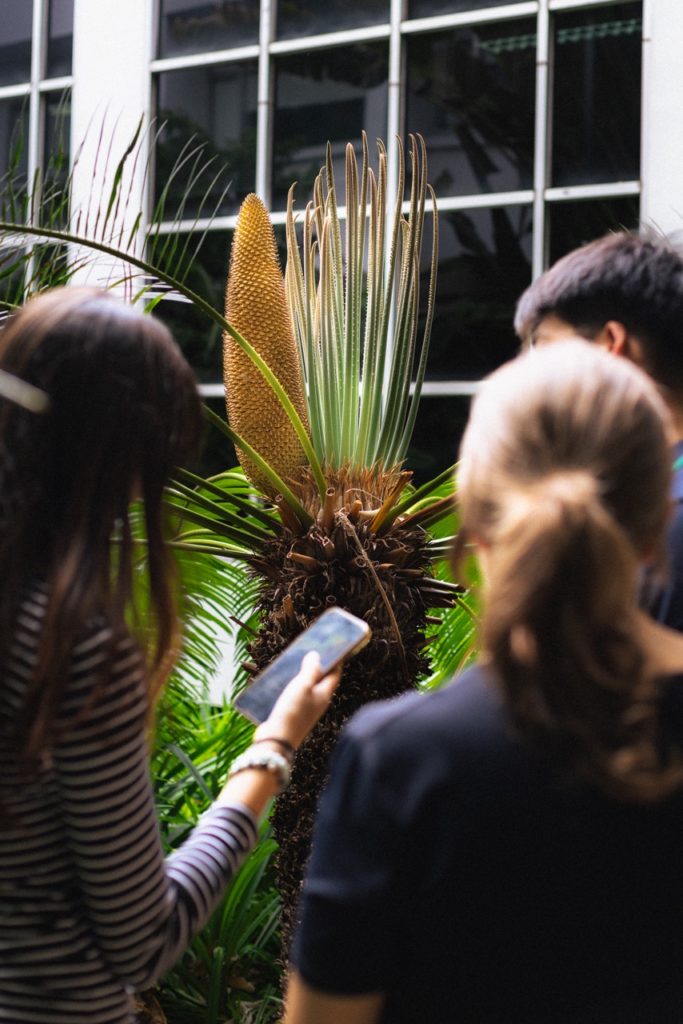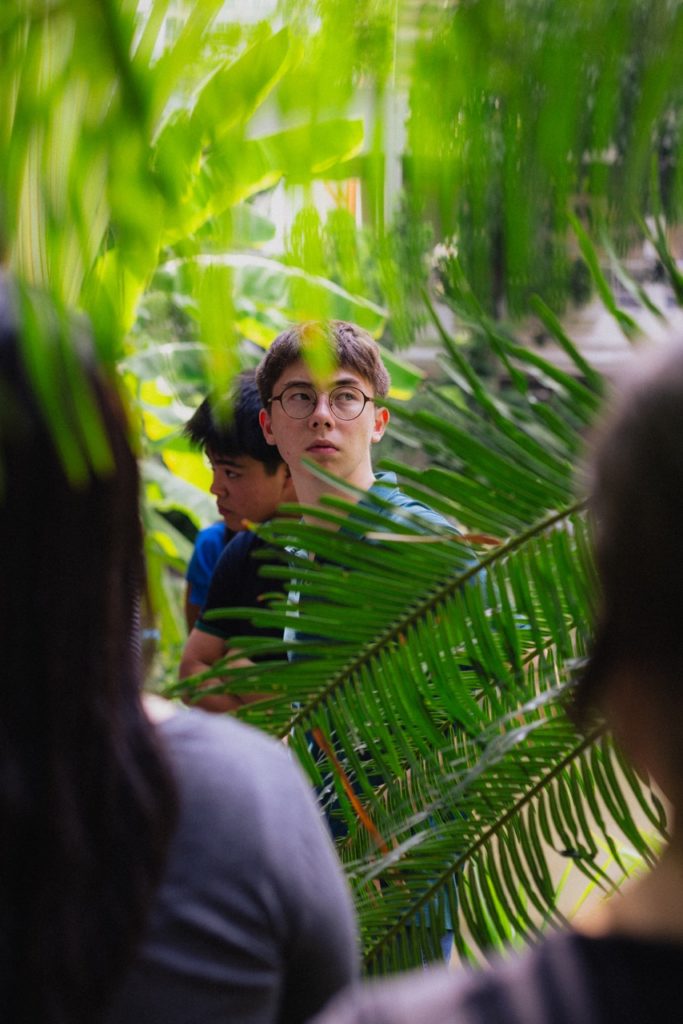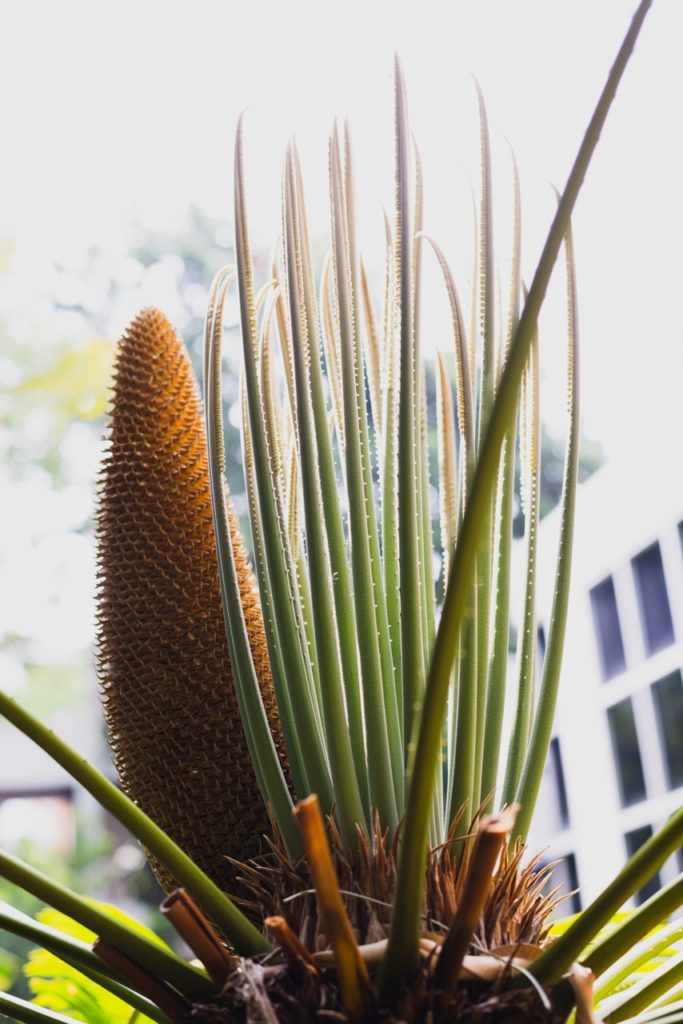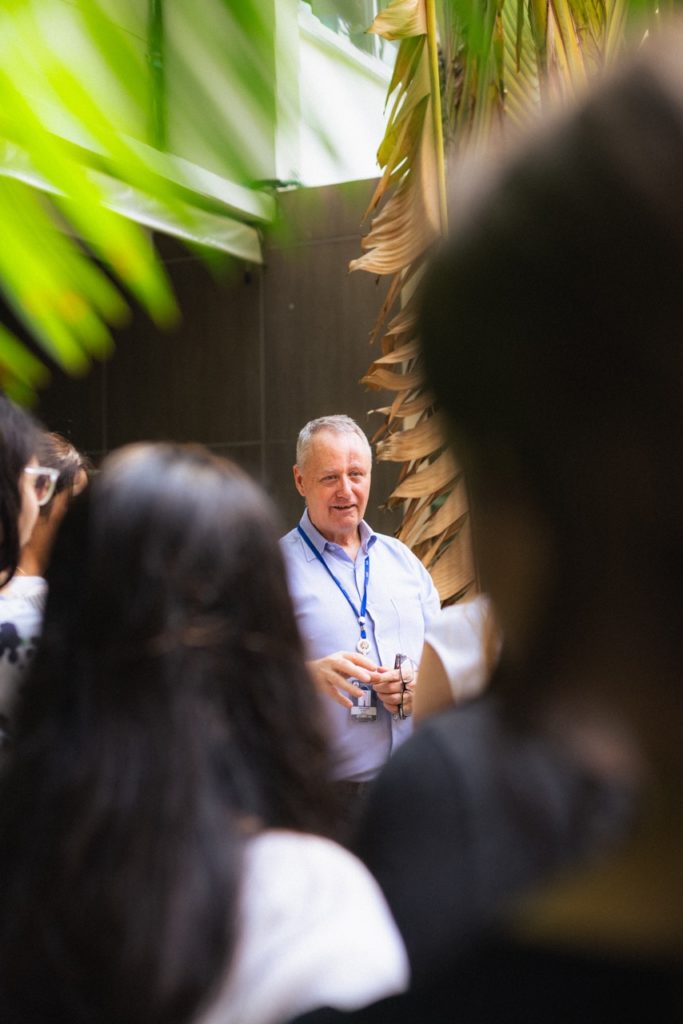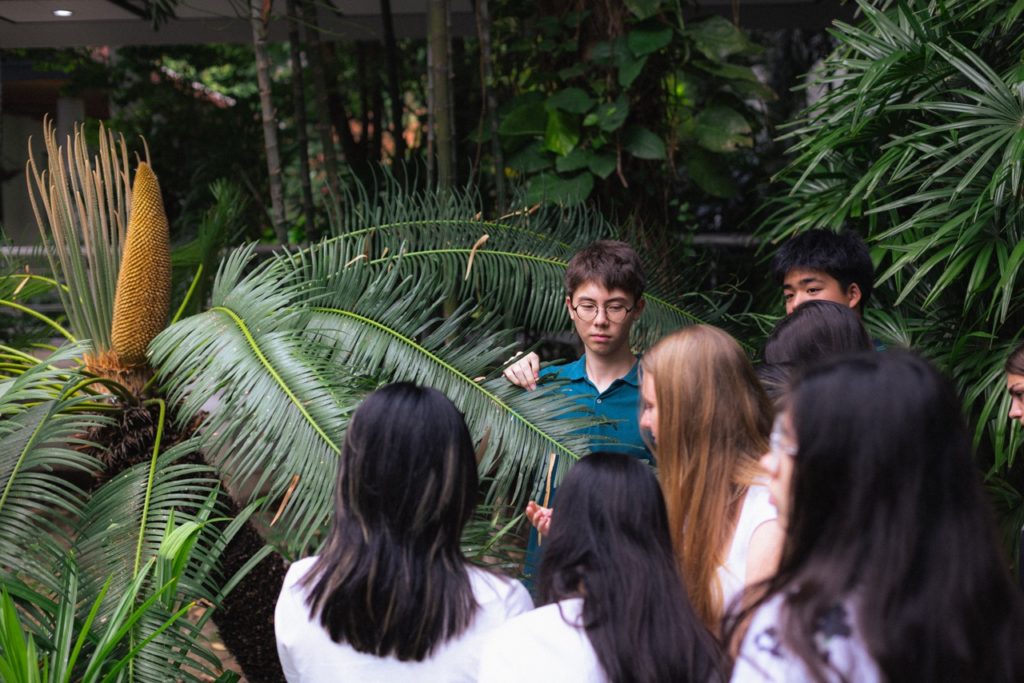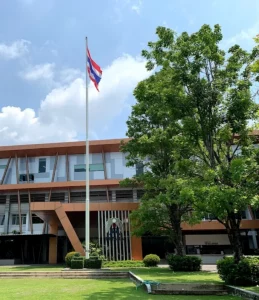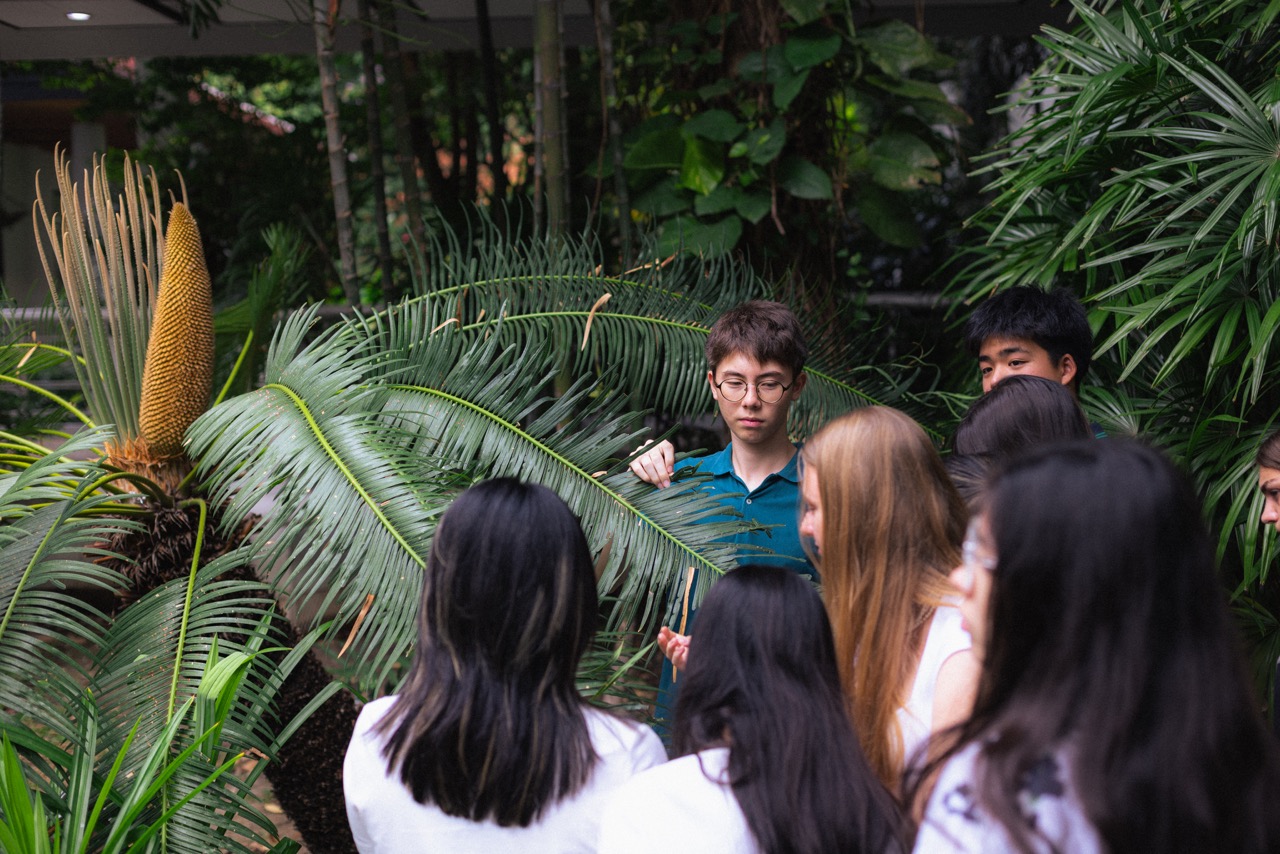
A Rare Event : Cycad Cones in Campus
One of the most endangered plant groups on earth..
Visitors to our campus are always struck by the beauty of the grounds, meticulously maintained by our dedicated team of gardeners. Biology students and teachers, however, view the grounds through a scientific lens, appreciating this natural laboratory and the “endless forms most beautiful,” as Darwin put it.
This week, near the Secondary Office and to the right, you can observe a new form: a member of the cycad family displaying its reproductive cones. As part of the gymnosperm division, this plant does not produce flowers or fruits. Instead, it forms dramatic cones, similar to those of fir or pine trees. One of the most endangered plant groups on earth, cycad plant is dioecious, with the elongated cone we see here identifying it as male. Our Year 12 Higher Level IB Biology students were able to explore the cycad cone and learn more about the species with their teacher Mr Burrell. They will explore the grounds further to find a female of the species. This is rare in Thailand and our students are extremely lucky to find this right in our campus.
For students, the grounds are very much a part of our classroom, and the shade is often provided by a canopy of various species. Around the sala, the trees are a vibrant mix of South American cannonball trees, buttercup trees and frangipani, intermingled with the cassia and trumpet trees of Thailand. I like to think of the gardens as something of a metaphor for our own school community—a rich, vibrant mixture that is beautifully maintained, growing, and thriving.
